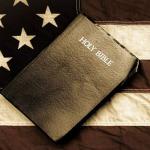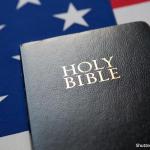 People outside the church are frustrated when people inside the church fail to see that there should be a clear division between the two. They feel that Christians are out of line when they treat the culture around them as if it were their church. Honestly, as a Bible-teaching pastor I agree to some degree. Some Christians are wrong in how they understand the relationship between church and society.
People outside the church are frustrated when people inside the church fail to see that there should be a clear division between the two. They feel that Christians are out of line when they treat the culture around them as if it were their church. Honestly, as a Bible-teaching pastor I agree to some degree. Some Christians are wrong in how they understand the relationship between church and society.
Multiple participants saw Christians using legislation to control their lives. One guy put it like this:
“I understand that there are some issues, let’s say whether it’s abortion is right or wrong. If you think it’s wrong you should just cut out. I can’t play poker online any more, I can’t buy alcohol on Sundays without restrictions. I can’t smoke pot. What I watch on TV gets restricted. I can tell you I attribute it to Christians. I sure as heck don’t want a bunch of Christians deciding that level of what I can do in my life. There are some big picture things that we probably all have to agree whether they are okay or not. The Christians are going way beyond that, and this gets into the politics and defining what is okay and what’s not okay for people to do. I just think that’s nuts.”
Throughout the Bible a clear demarcation exists between God’s people and others. God repeatedly tells his followers that they cannot act like their neighbors—non-believers living among them and the cultures around them. God has different expectations of his own. The Old Testament records recurring conversations between God and his people that sound like a dad whose children keep pestering him to get away with the same stuff as the neighbor kids. The dad tells them “no,” explaining that his family rules are different from the family rules next door. In the New Testament, the words “church” and “world” mark this split between the two proverbial families. Sin means crossing that line of demarcation. Holiness means abiding by the rules on this side of the line.
Christendom and Christianity
Some Christians seem to miss this. Across history and particularly in America, they see their nation as one big church, resulting in a thing called “Christendom.” My book A Call to Resurgence details this problem. Let me sum up what I say there.
For starters, Christendom is not the same as Christianity. While Christianity has existed for a couple thousand years, Christendom emerged around five hundred years ago, the exact date depending on which historian you prefer. America was an experiment in Christendom. It was to be a nation established largely by Christian people with Christian principles pursuing Christian purposes. The line between church and world soon became very blurry.
America was not the only place where Christendom took hold. But it led the nations in basing moral values on biblical principles, so that people more or less shared a common outlook on right and wrong even when they failed to live up to their ideals. Most everyone knew sex was reserved for marriage. Marriage was for a man and a woman. Pornography and casual sex are evil most would at least say even if they did not practice what they preached. Children are a desirable part of life. All of these mores and more were part of a common vision of the good life for a good nation.
At the center of cultural influence within Christendom were religious leaders and houses of worship. They were essential to upholding the moral framework of a good nation. Politicians were expected to believe in God and attend church, and political speeches were supposed to be littered with the language and imagery of Scripture. Places of worship were given benefits such as tax exemptions as a way of recognizing their value to the greater culture in promoting virtue, restraining vice, and helping the needy.












